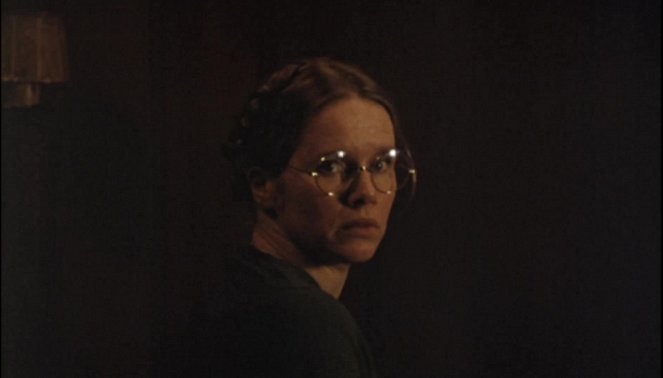Rendező:
Ingmar BergmanForgatókönyvíró:
Ingmar BergmanOperatőr:
Sven NykvistSzereplők:
Ingrid Bergman, Liv Ullmann, Lena Nyman, Halvar Björk, Gunnar Björnstrand, Erland Josephson, Georg Løkkeberg, Eva von Hanno, Marianne Aminoff (több)Tartalmak(1)
A film anya és leánya közötti kapcsolatról szól. Az anya híres zongoraművésznő és nemigen foglalkozik a gyerekével. Sok év után először találkoznak újra egymással egy katartikus éjszakán. A lány szemére veti mindazt, amit benne elrontott, elsorvasztott. Az elején azt hihetnénk, hogy ez az anya elítélése, de lassanként rokonszenvet érzünk iránta. Megértjük, hogy sok dolgot véghez vitt életében, nagy művész volt, húsz éven át szeretett egy férfit, de mint anya megbukott. Ezért a bukásért ítéli el teljes egészében a saját lánya. És természetesen nincs igaza..." (Liv Ulmann) "Bergmannak volt bátorsága a végletekig vinni a fájdalmat és a fojtogató szembenállást a két asszony között, leásni a tudatalatti legtitkosabb rétegeibe és felszínre hozni a leggyötrelmesebb csalódás és legmélyebben elfojtott gyűlölet érzéseit. A film szinte az ördögűzés megdöbbentő szenvedélyességével egyre felkavaróbb erővel ragad meg, s egy olyan per feszült izgalmát idézi, amelyben a vádlott fokról-fokra elveszíti ellenálló erejét, kezdeti gőgjét, tettetett biztonságát és védekezési eszközeit (MTVA)
(több)Videók (1)
Recenziók (3)
The first Bergman that lost me, absolutely, in terms of theme and, primarily, emotions. I wouldn’t expect that of all directors he would put a handicapped, unwanted daughter, an abortion, infidelity, the tragic death of a child and many other “cheaply powerful" artsy topics. Which might have worked even so, if this weren’t his most talkative picture. Or rather, empty waffling from the first to the last minute. While the same could have easily been intimated by silence, too. And as the only scene where we find some good old benign silence (yes, the one where they are sitting at the piano) is so much more powerful. The more I think about it, rather than the entire movie, the short passage devoted to this in Bergman’s “Magic Lantern". In terms of power and impact this couple of paragraphs is in a completely different class than the entire Autumn Sonata which in my eyes (and ears, due to the shouting) should have tried mopey autumnal melancholy instead of theatrical affect. Then I would have taken pity on it. Gladly.
()
Ingmar Bergman simply had great actors for his films, but I can't help but notice that gradually, he showed that he worked much better with actresses and could really get the most out of them in his work. That is also true of this film. It's focused on women, and actresses have excellent performances.
()
In Autumn Sonata, Ingmar Bergman gives the audience the chance to glimpse the inner workings a woman and into hidden corners of her psyche, gradually revealing a seriously disturbed mother-daughter relationship. It is a sight so intense that it made me feel incredibly uneasy at times. The quality and timelessness of the film is unquestionable, yet it did not impress me as much as I expected. (75%)
()



Hirdetés